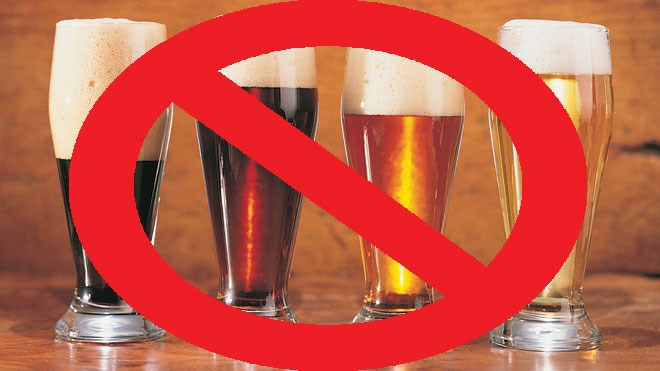The Sudbury and District Health Unit voted unanimously Thursday to support an open letter to the premier, and other provincial officials, that expresses concern over plans to offer beer sales in 450 Ontario grocery stores.
The province announced Thursday it plans to expand beer sales through its Moving Ontario Forward Plan.
The plan would “give Ontarians more convenience and choice, while maintaining a strong commitment to social responsibility,” the provincial government said in a press release.
Expanding the sale of beer by up to 450 more locations would be roughly equal to the existing number of Beer Store outlets, and would be in addition to the more than 600 LCBO stores across Ontario.
But in an open letter to Ed Clark, chair of the Premier's Advisory Council on Government Assets, which recommended the expansion of beer sales, Dr. Penny Sutcliffe, the health unit's medical officer of health, and president of the Association of Local Public Health Agencies, said the plan would have negative public health consequences for Ontarians.
“Our chief concerns lie in the demonstrated relationship between alcohol consumption and availability, which means that we will not typically favour strategies that are based on expansion, including increases in the number of outlets or diversification of available channels,” Sutcliffe wrote.
The Sudbury and District Health Unit board unanimously supported the letter, which was also sent to Premier Kathleen Wynne and other public officials.
Evan Jolicoeur, a public health nurse who leads the health unit's alcohol misuse prevention program, said increasing the availability of alcoholic beverages would cost the province more than it would make in revenues.
In 2013, he said, Ontario received around $3 billion in dividends and taxation revenue form the sale of alcohol. But the consumption of alcohol cost the province $5.3 billion that year.
Those costs included chronic and emergency health-care spending, costs to the judiciary and law enforcement due to alcohol-related crimes, loss in productivity, and premature deaths related to alcohol, both from alcohol-related diseases and drinking and driving.
“We know from all the available evidence, and the experiences we've had in other jurisdictions across the country, is that when we increase alcohol availability, and allow further privatization of alcohol sales, that leads to an increase in the consumption of alcohol,” Jolicoeur said.
He said Quebec and Alberta, which have semi-privatized models for the sale of alcohol similar to what Ontario is proposing, have more cases of alcohol-related harm, including drinking and driving cases, than in Ontario.
Alcohol is also the second leading cause of death, disease and disability in Canada, he said, and is linked to more than 60 diseases.
In Sudbury and the surrounding district, alcohol consumption is “significantly higher” than in the rest of the province, Jolicoeur said. Eighty-four per cent of adults in Sudbury, ages 19 and over, consumer alcohol, compared to 78 per cent of adults in all of Ontario.
For teens, ages 12 to 18, the alcohol consumption rate in Sudbury and the surrounding district is 43 per cent, compared to 37 per cent in the province.
Jolicoeur said allowing the sale of alcohol in stores could make it easier for minors to purchase alcoholic beverages – as has been the case for tobacco products – and would normalize the consumption of alcohol by making it more readily available.
Join Sudbury.com+
- Messages
- Post a Listing
- Your Listings
- Your Profile
- Your Subscriptions
- Your Likes
- Your Business
- Support Local News
- Payment History
Sudbury.com+ members
Already a +member?
Not a +member?
Sign up for a Sudbury.com+ account for instant access to upcoming contests, local offers, auctions and so much more.
